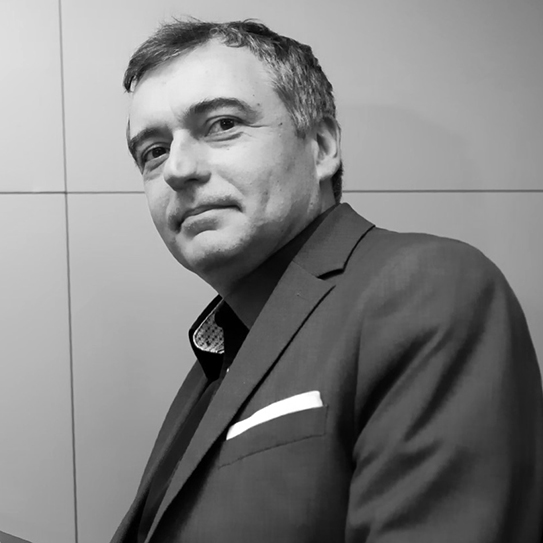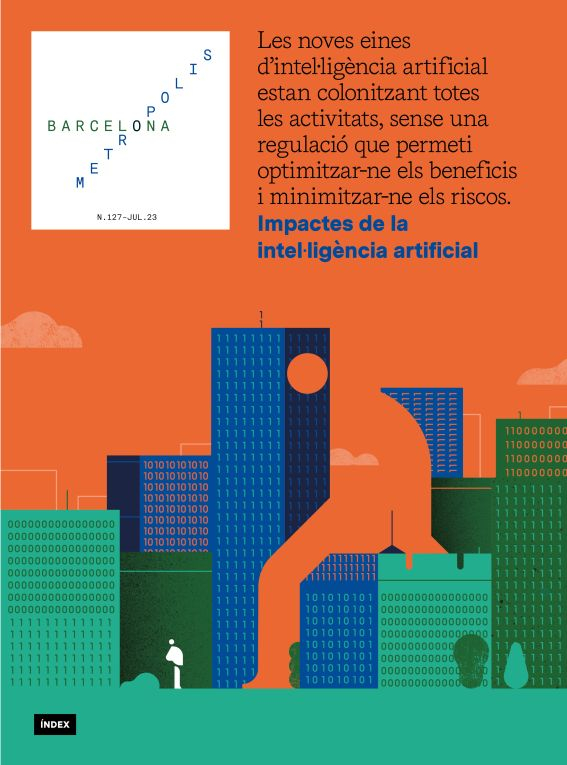Pierre Lemaitre. The musketeer of literature
- In transit
- Jul 23
- 8 mins

Few people in the world are as clear about things as the Frenchman Pierre Lemaitre (Paris, 1951). As if he were a Napoleon of literature or a resurrected Dumas, his imagination runs the gamut of the whole world, the major social, historical and political movements as well as the little headaches and passions of everyday people. If he were a politician, we would say he is a statesman. If he were a writer, we would call him the Balzac or the Dumas of the 21st century.
His current literary venture (he does not work on a one-book basis, but rather on book series) is simply to “portray the 20th century in its entirety”. “Age permitting, I want to create something that is not so much a fresco, a pretentious word, but a photograph of the 20th century in the 1980s or 1990s,” he tells us. To tell entertaining stories that take place in those times”. He has come up with three trilogies: the first is Les Enfants du désastre [Children of Disaster], already completed, which narrates the two great world wars and their causes and consequences; the second (in the end, a tetralogy), which he has half finished, Les Années Glorieuses [The Glorious Years], covers the 1950s and 1960s; and the third, only in the works, Les Années Grises [The Grey Years], will deal with the 1970s and 1980s. Commenting on how this major undertaking came about, he explains: “It was purely mechanical, in Les Enfants du désastre I had written about the 1920s, 30s, 40s... and I thought to myself: ‘Now I’ll focus on the 50s! And then the 60s!’ Don’t you think it’s a stroke of genius? I’m brilliant... Les Années Glorieuses will end in 1965. And you know what I’ll do next? Another trilogy! One that will start in the early 1970s and end with the fall of the Berlin Wall in 1989. I have about another six years of work to do. When I finish, I’ll be 78 years old and I reckon I’ll be able to die by then, although I don’t rule out other possibilities.”
Over the years, we have met this literary giant, both on his visits to Barcelona and in his successive homes (he never stays still) in Courbevoie, Montmartre, Arles and the outskirts of Bordeaux (over time, he has moved away from Paris). At the time of the pandemic, we talked to him via Zoom, during which, forever with the characters from his novels swirling around in his head, he showed us, for example, the cardboard horse’s head one of his main characters slept with.
When Lemaitre is in Barcelona, he always tries to get to the beach and does not make it. His busy event schedule prevents him from setting aside a day’s leisure time, so all the places he has visited are related to literary activities in which he was taking part. This was the case with Montjuïc Castle, where he attended a talk and was impressed by the grounds and, above all, by the views of the city. Among his most vivid memories is his meeting in 2017 with John Banville – an author he has admired for years – at the Centre de Cultura Contemporània de Barcelona (CCCB), where he also spoke with Jean Echenoz. A few months ago, at a packed event with readers at the Jaume Fuster Library, he was surprised to see the number of people unable to get in, and he spent ages talking to those who had waited outside just to see him pass by.
His prose is adrenaline-fuelled and tragicomic. Humour, dramatic action and sheer tension shake the characters, who play their role and often act in an over-the-top fashion, exaggerating feelings and gestures. Plot dominates over psychological depth. Each chapter ends with the action hanging in the air, like when the authors of short stories didn’t know how the book would continue the following week. This is not the case with Lemaitre, a keen planner who spreads his plotlines all over the studio. “Many years ago, watching The Sopranos and Six Feet Under, I realised that today’s series worked with the same narrative framework as 19th-century novels. I opted for the modern virtues of 19th-century literature and I did quite well...”.
It all began with the crime series starring the dwarf Chief Inspector Camille Verhœven (from 2006 to 2012). Lemaitre, a former practising psychologist, was passionate about literature and taught French, literature, general knowledge and communication in the Parisian banlieues, in vocational schools for adults. He also taught at a school for librarians, where he had an affair with a pupil. “As I was a model teacher, I said to myself: ‘If you seduced one of your students, it is only right for you to marry her’.” So he did, and published his first book in 2006, at the age of 55, thanks to her insistence. “It’s not that I became a writer then,” he explains, “I had been one since I was 18, I’ve always written, although I didn’t publish. I admit that it was all thanks to Pascaline. She had the faith in me that I didn’t have back then. I sent my first two novels to twenty publishers, and they all turned me down. I would have given up, but she insisted: ‘They’re wrong, Pierre’. Finally, one publisher said they would publish my novel about the detective Camille Verhœven. The book came out and we got married.” Around the age of 60, he became a father for the first time.
He describes Verhœven as “someone marked by fate. He is extremely short, 1.45 metres tall, and in a perpetual state of anger; he is not pleasant, without being disagreeable, but at the same time he is seductive. Although it is not easy for a woman to date such a short man, he has an enormous charisma that makes up for it. His point of view is crucial: he always sees the world from below, and this visual perspective helps him to solve cases. The character has some of my father’s traits and my greatest flaw; I had to work hard not to get caught up in anger”.
“The Prix Goncourt changed everything. The success took me so much by surprise that I had to put my life in order.”
Lemaitre’s new life as a writer changed radically once again when he turned away from crime novels and, out of the blue, Au revoir là-haut (2013) [The Great Swindle, English translation, 2015] won France’s highest (and most prestigious) literary prize, the Prix Goncourt. In his old flat in Courbevoie (on the outskirts of Paris) I saw the cheque with the symbolic ten euros that the prize represents hanging on the wall. He explains that “the Prix Goncourt changed everything: I moved out of my flat, I could concentrate on what I like to do, I could secure my daughter’s future... I felt like the master of the universe! The success took me so much by surprise that I had to put my life in order. For instance, my wife and I were starting to drift apart; we were leading parallel lives and we decided that she should become my assistant. She picks the interviews I do, reads and edits my texts, meets with my agent and reviews the contracts, so I can devote myself exclusively to what I love: writing.”
Many critics refer to Lemaitre as a serious writer in the wake of The Great Swindle, the first instalment of Les Enfants du désastre, which is completed by Couleurs de l’incendie (2018) [All Human Wisdom, English translation, 2021] and Miroir de nos peines (2020) [Mirror of Our Sorrows, English translation, 2022]. The Great Swindle is set at the end of the First World War, a world of dark wartime business and teeming with mutilations, secrets, corruption, murder, swindles, adultery... All Human Wisdom takes place some ten years later, when the daughter of a Parisian tycoon who has passed away plots a revenge worthy of The Count of Monte Cristo, the clear inspiration for the book. Finally, Mirror of Our Sorrows begins in Paris during the Second World War, shortly before the arrival of the Nazis and, as a historical backdrop, millions of French people become refugees in their own country, fleeing southwards along roads and byways.
He is now in the midst of the tetralogy Les Années Glorieuses, which continues the previous trilogy, beginning with Le Grande Monde (2022) [The Wide World, English translation, July 2023] and continuing with Le Silence et la Colère [Silence and Anger], not yet translated. “I want to follow generations of the same family over thousands of pages,” he explains, “it’s a romantic idea of what literature means.” Throughout the series, readers will follow the Pelletier brothers, a prominent soap-making family in Beirut. “If The Wide World is basically an adventure novel, Le Silence et la Colère is a social novel, a tribute to Zola. I am appropriating the great literary genres. The third part will be an espionage novel, a tribute to Hitchcock and Le Carré. The fourth and last part will be a detective story.”
Besides his novel series, he has completely standalone books, such as Cadres Noirs (2010) [Inhuman Resources, English translation, 2018], a vicious story about an unemployed human resources director who, to get a job, agrees to act as an assessor for a selection of managers that includes a surprise hostage-taking, to see the reactions of the applicants.
“There are intelligent young people, who think about their future and that of the planet. I believe in them.”
Lemaitre travels by train whenever he can (even to go abroad) and has reduced his meat consumption. Politically, he is more a portrait of an outraged person who voices citizens’ anger than of a committed author in the Sartrian tradition. Recently, with his fellow activists Annie Ernaux and Éric Vuillard, he was in favour of the demonstrations against the Macron government. He supported Jean-Luc Mélenchon’s candidacy for the presidency, but asserts that, “my commitment is social rather than political. I have agreed to be an ambassador for Secours populaire, a large [non-profit] association I belong to, which fights poverty and helps the most disadvantaged. There are intelligent young people, who think about their future and that of the planet. I believe in them.”
He says goodbye, affirming that he would like to return to Barcelona one day with time for himself, to wander around and explore the city further... “and finally get to the sea”.
The newsletter
Subscribe to our newsletter to keep up to date with Barcelona Metròpolis' new developments




